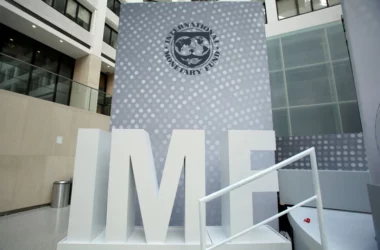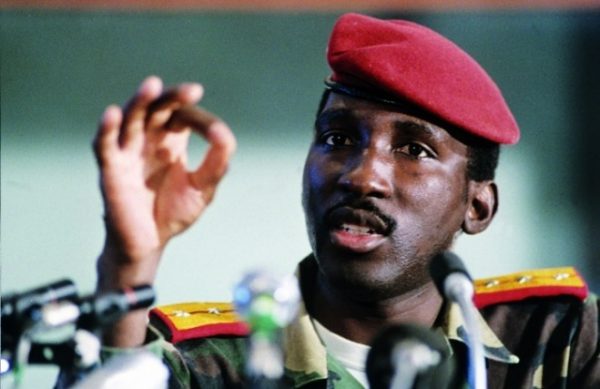
No one can read the works and words of Thomas Isidore Noel Sankara and fail to conclude that the late president of Burkina Faso was a certifiable feminist.
From his unmistakable ode to women “Women’s Liberation the African freedom struggle” to the collection of his speeches “We are Heirs of the World’s Revolutions”, there is no mistaking the high stead onto which the go-to icon of many – mostly men revolutionists and activists – place/d womenfolk.
One cannot read the section titled “The Specific character of women’s oppression” (p30-34) in the former title and not conclude that Sankara viewed efforts to liberate women, not as “acts of charity or out of a surge of human compassion, but a necessity for the revolution (against colonialism and classism) to triumph.” (Back of the book).
In Sankara’s view, the fate of women is “bound up with that of the exploited male.” (p30).
The assassinated revolutionist goes on to explain that the interdependence between the fate of men and that of women is a function of the human condition i.e. that both men and women, at some point, in history, have been exploited. This perspective, reality in my opinion, thus makes the idea that one (should) lord over the other patently ridiculous.
And while both genders in most oppressive system, say colonialism or apartheid or even the current exploitive socio-economic and political system in the Gambia, are bound to suffer in silence by default, the woman is doubly-condemned to suffer because of the patriarchal structure of these societies including the Gambia. To this end Sankara offers that “in addition to the class exploitation that befalls both (men and women), women must confront a particular set of relations that exist between them and men….” (p30)
Class and its close cousin patriarchy have allowed men to maintain their domination over women. (p31). These are the same sets of dynamics some men have used to rule certain/other men, by virtue of family, race, religion or perceived “divine right”.
By failing to see this construct, men (and some women) end up talking about “the war of the sexes” and/or “toxic femininity” without understanding (or refusing to understand) the origin/basis of the “conflict” or dislocation between the sexes i.e. between men and women.
Effectively, what Sankara is arguing is that the so-called “battle of the sexes” is the war between social groups and classes that should be waged together with men and women complementing each other.
Unfortunately, the insatiable and selfish desire to maintain the status quo; to exact a zero-sum winner-take-all outcome that is all too common in most (African) societies makes the more desirous complementary outcome between the sexes difficult if not outrightly impossible to achieve; a state of affairs Sankara is only too ready to call out and assign blame: “The attitude of men.” (p31)
The terms “toxic feminism” or “feminazism” are default tropes trotted out by men; mostly born into privilege/entitlement and patriarchy; who for some strange reason, cannot countenance the foregoing truism – that the “battle between the sexes” is a battle between social groups and classes.
The resultant oppression and/or violence – literally and metaphorically – towards women are, to quote Sankara “nothing more than safety valves for oppressed males who through their wives (and female counterparts), hope to gain some of the human dignity denied them by the exploitive systems” they’ve either created and lost control of OR refused to stand up to!
Considering the recent high-profile murders of young women – one who I wrote about – and the resultant self-flagellation that ensued – especially among men but also some women, it was fortuitous that I came across Sankara’s take on the mostly “blame-the-victim” narrative of supposedly enlightened forward-thinking men.
And I quote: “Remarks such as ‘women are despicably materialist’….’profiteers’….’liars’….’schemers’….and so on may all be true but surely it is equally true for men”. (p33) ……”
One cannot look at the behavior of men, African men/leaders who have perfected the art of despicable materialism, wanton profiteering, outright lies and scheming; men whose jealousy and envy led them to commit untold atrocities against single or myriad victims and wonder what gives them the right to cast aspersions on others; on women who also lie and scheme during their jealous pursuit of materialism.
To quote Hillary Clinton, a woman who has been characterized in the very terms Thomas Sankara alludes to in his book, “women’s rights are human rights” and the sooner all societies realize that, the better off they’ll be.













Alagi you are a brilliant writer who has produced tonnages of literature on poignant social and cultural issues. It’s always a pleasure to read you.
I have a question though that’s wailing for an answer.
Why do you like to quote known white racists, being they academics, politicians, historical figures or just any somebody-nobodies?
Instead of Hillary, why not Anti Amie, Dr. Isatou Touray, the Tuku’s etc? Or if it has to be someone from the Western Hemisphere, Angela Davies, Toni Morrison, Maya Angelou just to name a few. Hillary is bigoted to her ankles. I think such people should stay out of our narrative(s) and by extension the whole discourse if we can.
Religion (in its corrupt form) is the #1 hindrance factor holding our Afrikkan women back. Won’t you say so?
The lowest and most block headed type of racists after those in public uniforms around the world are; those unskilled racists who can’t even grow bananas in their backyards.
These are people who would think they’ve read all the books on earth so stuff read by others need their approval. I hope lava from the skies shoot down and precisely hit and melt all racist and tribalist energies across the surface of this earth.
Sankara was a great leader and a man who genuinely respected and believed in the Burkinabe women. Few leaders today, if any at all, would match his desire to grant women equal status and opportunities.
We remember that he was the ONLY leader to add a women’s day in the National calender of his country, when women relax whilst men do the chores: cooking, washing, sweeping, etc.
Late Thomas Sankara an advocate of women’s rights and respect for women.
Sankara was indeed a Champion and regretably ahead of his time.That is really sad! And deep helpless for me is the symptomatic behavoirs of our ensuing leaders. Even after Blaise Campaore Exit, the new Dispensation in Burkina Faso has not completely ascertain the circumstance of Sankara’s Death.
And still missing is for the AU to declare a “Sankara day” to commemorate his Actions, and the promise of his aims.
If I was a military dictator who is a “feminist”, I would:
1. Decree that there will be parity in pay.
2. Decree that women and children have social protection from abuse.
3. Decree that my country become a community property state.
4. Decree that spousal and child support be paid to abandoned women and children.
5. Decree that all poor women and children get universal free health care and shelter.
6. Decree to create special program for women business/trade.
7. Decree that ALL children enroll in school.
8. Choose qualified women to represent half my cabinet.
Then you may learn from my actions who I am.
Allah guide all those ignorant men that seize power by force.
Dr. Sarr, the use of “degree” to bring about Change is an own shoot in the foot. And if it is meant as a parody about our praise for Sankara, I do agree with you. seizing power By force is in itself self-defeating irrespective of the ideals. And to exempt Sankara from this rule would be a forejudge …since we are limited by unfulfilled promises in Sankara’s trajectory. He could also have turn-out into something else.
Actually, Sankara did not overthrow the government. He was under house arrest at the time, having been relieved of his position as the Prime Minister because the French did not like his ideas of African Independence. His arrest caused such uproar in the streets of Upper Volta (because he was a very popular figure even then, having come to prominence during the (then) Upper Volta-Mali border clashes in 1974; a war which he later declared as “pointless and unjust battle” (Elliot 1988,7)), that the military overthrew the government and reinstated him as head of state.